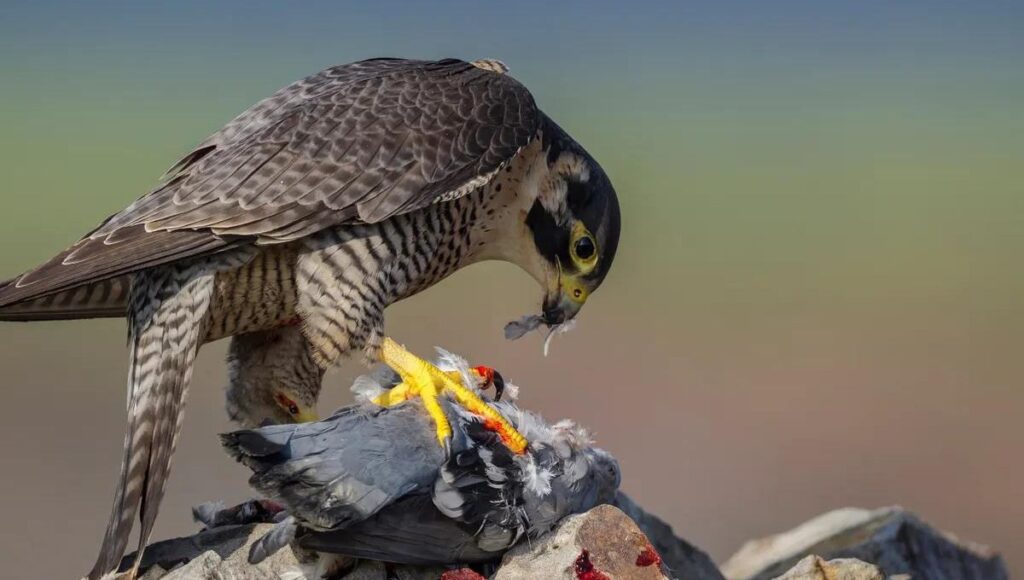Peregrine falcons, renowned for their astonishing speed and agility, are among the most iconic birds of prey in the world.
Their predatory nature and diverse diet have long fascinated researchers and bird enthusiasts alike.
In this article, we will explore the intriguing question: Do peregrine falcons eat birds?
Do Peregrine Falcons Eat Birds?
Peregrine falcons, without a doubt, are avid avian hunters. Their diet primarily consists of other birds, making them formidable aerial predators.
These supreme hunters have adapted to exploit the skies as their hunting grounds, employing unique strategies and physical prowess to secure their prey.
Some of the birds that peregrine falcons eat include pigeons, doves, quails, grouse, and songbirds such as sparrows and finches.
They have also been known to eat larger birds such as waterfowl and raptors. Their diet is incredibly diverse and depends on the availability of prey in their environment.
Related: Do Peregrine Falcons Really Eat Bats?
Aerial Acrobats
Peregrine falcons are known for their exceptional speed, reaching astonishing velocities of over 240 miles per hour during their hunting dives, called stoops.
Soaring high above the landscape, they surveil their surroundings, meticulously selecting their target from an array of potential prey.
Related: Do Peregrine Falcons Eat Bald Eagles?
Strategic Strikes
Once a suitable bird is identified, the peregrine falcon initiates its dramatic stoop.
With precise and calculated movements, it plummets toward its prey, executing swift and deadly attacks.
The incredible speed combined with their sharp talons allows them to strike with accuracy and deadly force, leaving little chance for escape.
Related: Do Peregrine Falcons Eat Fish?
Bird Buffet
Peregrine falcons exhibit a diverse diet, feasting on a wide range of bird species.
From pigeons and doves to small songbirds, waterfowl, and even larger birds like ducks, their menu consists of various avian delicacies.
They are known to adapt their hunting techniques depending on the size and behavior of their prey, showcasing their exceptional intelligence and adaptability.
Impacts on Ecosystems
Peregrine falcons play a crucial role in maintaining the balance of ecosystems they inhabit.
As efficient predators, they help control populations of their prey species, preventing overpopulation and consequent ecological imbalances.
By preying on weaker or sicker individuals, they ensure the survival of healthier individuals, contributing to the overall health and vitality of avian populations.
Conclusion
In conclusion, peregrine falcons indeed have a penchant for consuming birds. Their remarkable aerial skills, lightning-fast speed, and precision strikes have earned them the reputation of being avian hunters par excellence. They are a testament to the marvels of the natural world, illustrating the intricate dynamics between predator and prey. The existence of peregrine falcons is a reminder of the inherent beauty and complexity of our planet’s ecosystems.

